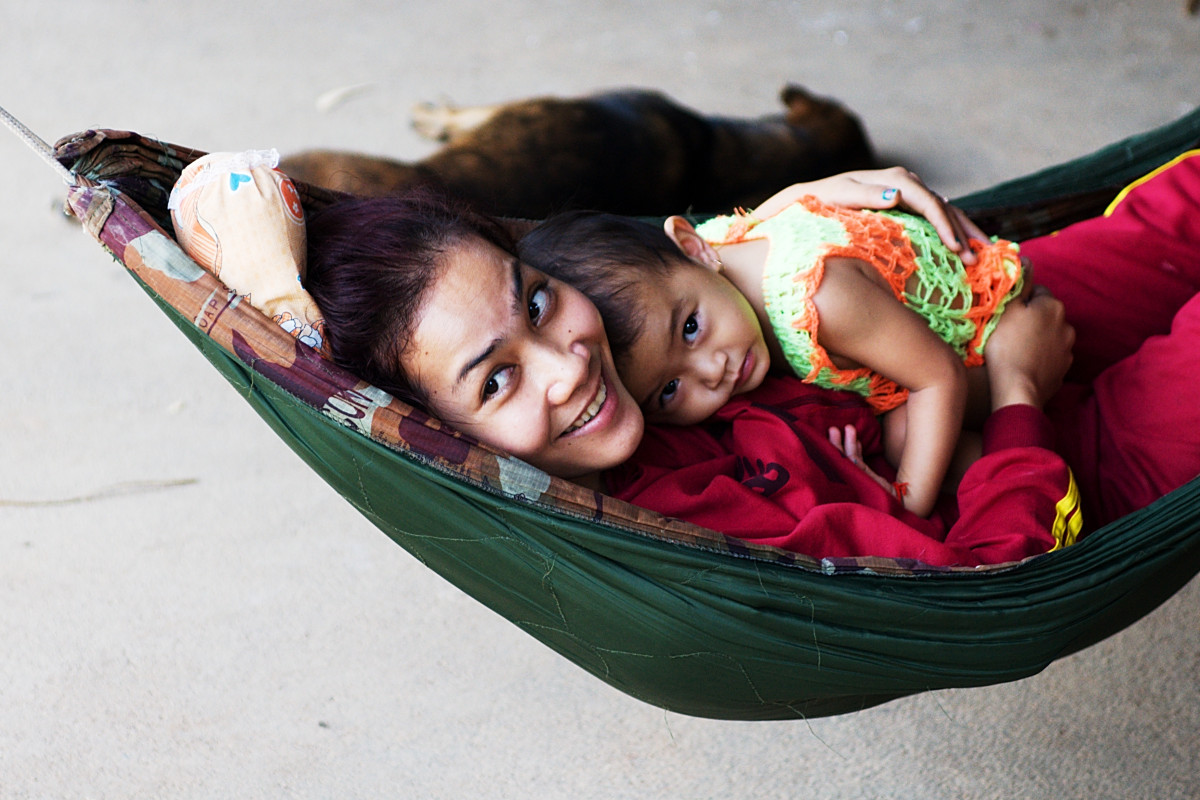PIN sends educational messages directly to Cambodian women´s phones
Published: Jun 8, 2015 Reading time: 4 minutes Share: Share an articleBip bip, bip bip. Phone ringing, but this time it is not friend or relative who is calling. It´s People in Need´s (PIN) voice message, which has been distributed to Cambodian young mothers and pregnant women. By that they are educated on how to take care of their children, and thus ensure their healthy development and limit the possibility of malnutrition.

"I registered the service after visiting the medical center where nurses told me about it, now I get one message per week with information about hygiene, breastfeeding and child care," says Vy Channa, mother of eight years old boy and three months old girl. "I have learned to wash my hands before touching the umbilical cord. And after I bath the baby, I have to make sure the cord is clean and dry. Also I learnt about the position and attachment for breastfeeding. Now I know that the baby has to have its mouth all over the nipple to make sure it´s feeding properly. Finally, I learnt how often to feed my baby,“ says Vy Channa who recieves free voice service for more than one month.
About six and a half thousand women from two districts of the province of Kampong Chhnanng currently use the same mobile service just as Channa does. People in Need has chosen mobile devices for spreading awarness messages due to their simplicity and the intervention of a large number of people. "It is very easy to send messages to promote good health practices in this way. Approximately ninety percent of local families have their own mobile phone," says Makara, PIN´s Health Promotion Officer.
Till six months of age exclusive breastfeeding
The positive effect of educational messages have been already noticed even in health centers. Oksang works as a midwife at the medical center Ampil Toek and besides taking care of mothers and newborns she is also responsible for the training of mothers in the postnatal care.
"I noticed that the knowledge of mothers who receive voice messages improved. In these days mothers know better how to take care of the kids, they can better identify any irregularities associated with cord, they know how to properly breastfeed and which supplementary feeding is good for their child," says Oksang.
#~gallery-1320~#
Using the mobile technology is one of the methods of spreading health education among the Cambodian population. However, to induce desired changes in behavior as a result of new knowledge the local team of People in Need use also more traditional techniques - for example, PIN trains midwives and other workers of health centers in various practices of child care and proper personal hygiene. All this together contribute to the smooth physical and mental development of the child and limit the possibility of malnutrition, which is caused not only by lack of nutrients, but also by the lack of proper hygiene practices, drinking untreated water or by diarrheal diseases.
"Women in the trainings learn why it is important to have in the diet all of three types of nutrients, namely fats, sugars and proteins, and learn how to prepare nutritious meals for their children, which may be given to them from six months of age. Until that time they have to feed their kids only by the breast milk," explains Makara.
Also the grandparents have to be trained
One of the mothers who participated in the training is thirty years old San Mom. She has three grown-up children and twenty months years old daughter. San Mom has changed the diet of her small daughter on the advice of trainers. „The change came
very shortly. Earlier daughter was very ill, she used to have a cough or fever, and always poor appetite. Ever since I give her porridge made from different kinds of vegetables her health improved . She has a larger appetite, she is not so sick, and she learn more quickly. I can also see that she is stronger and bigger too,“ says San Mom.
However, a problem can arise when mother will have to go to work, and her child will have to be in care of a family member. " In the areas where we work, the level of education and living standards are low. To be able to work during the day, parents leave the children with grandparents or other relatives who do not know how to care about the kids and how to feed them properly," explains midwife Mousulmoul why it is necessary to educate also other family members.
And this, as confirmed by a field worker Makara, is the goal of PIN´s nutrition project. "The goal is to expand in the community good hygiene and nutrition practices, and in this way improve the health of children and reduce the incidence of malnutrition," he adds.
Project is funded by Czech Development Agency, DAI and USAID.



